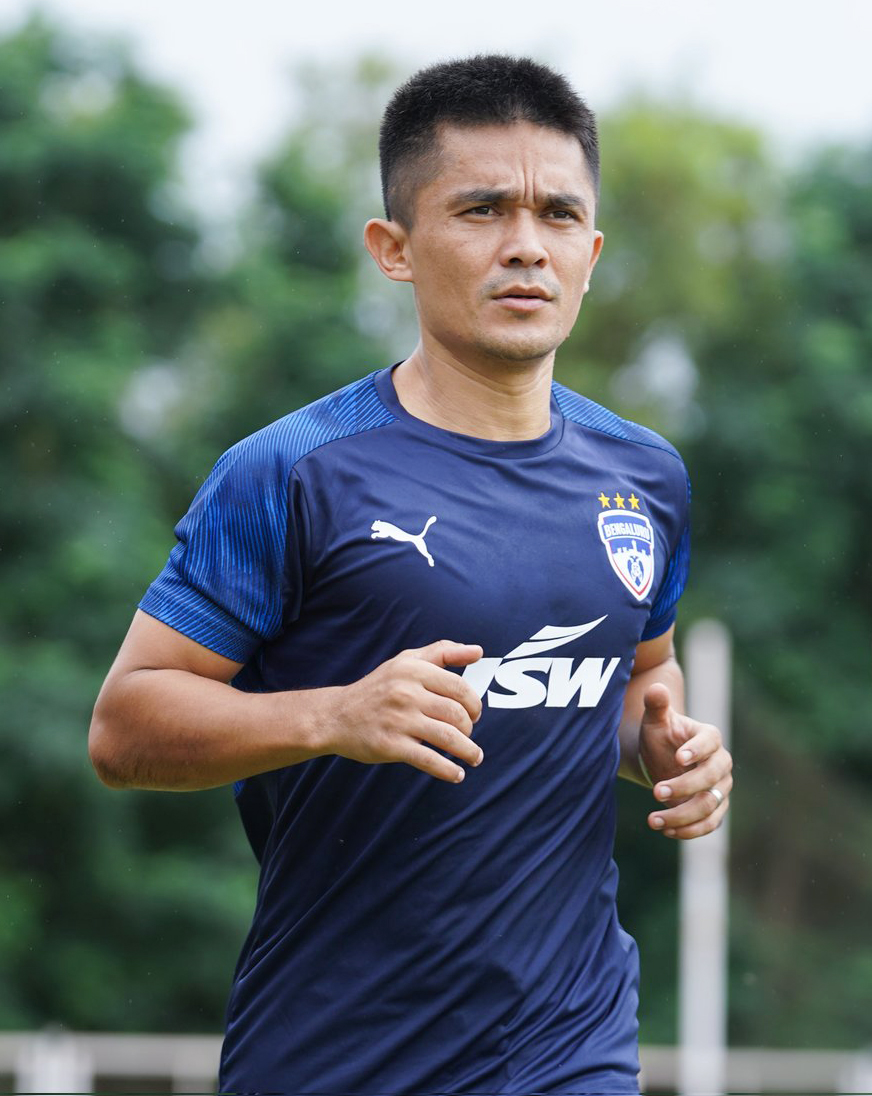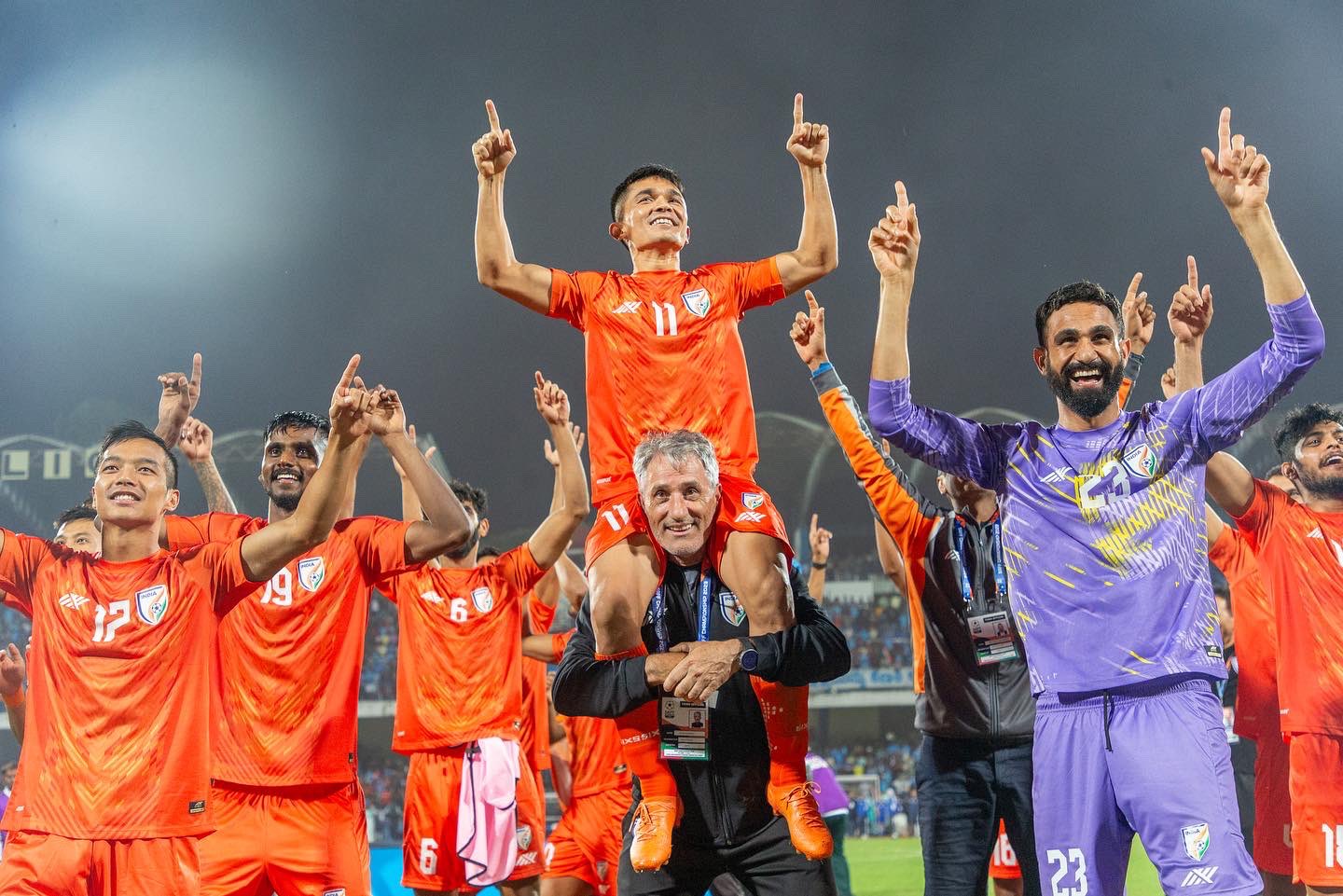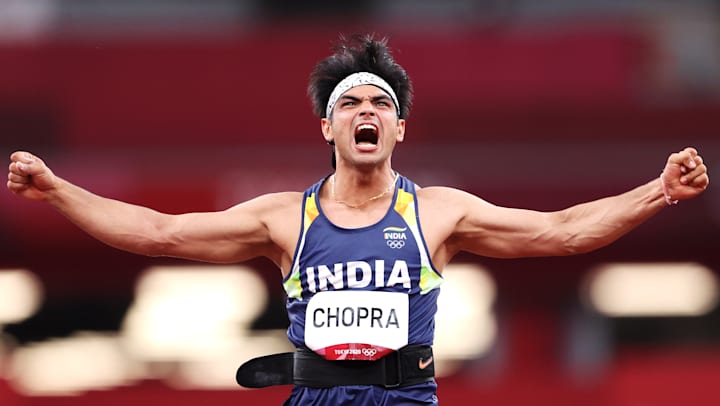(July 6, 2023) On the night of July 4, 2023, as the Indian football team went up against Kuwait in the South Asian Football Federation championship game in Bengaluru, I abandoned the television to stand on the balcony instead, where the night resounded with 25,000 spectators singing ‘Vande Mataram’ in Sree Kanteerava Stadium nearby. India defeated Kuwait 5-4, clinching the cup with a penalty shot. The man of the hour – and the tournament, was India’s 38-year-old striker and captain, Sunil Chhetri, who scored the highest number of goals in the series. A FIFA series on Indian footballers earned him the moniker ‘Captain Fantastic’, and Chhetri is now the stuff of legend – despite India’s modest ranking of 100 in the FIFA charts, Chhetri is the third highest international goal-scorer today, after mega stars Cristiano Ronaldo and Lionel Messi. He’s the highest goal scorer of all time for the Indian national team, with a whopping 72 national goals. On his 34th birthday, the Asian Football Confederation named him an ‘Asian Icon’. “Chhetri is in a category all by himself”, wrote sports journalist Marcus Mergulhao in the Times of India.
He’s 38, and playing a sport that is demanding on the mind and the body. On the good days, like the stellar performance he gave at the SAFF championship series, he’s surrounded by love and adulation. Then there are the bad days when even someone of Chhetri’s calibre can miss an open goal, or falter in an important game and come home to a volley of abuse and disappointment from millions of fans. Whatever it might be, Chhetri’s philosophy is simple: Stick with it and keep on going. To the public eye, Sunil Chhetri lives a very glamorous life and counts cricketer Virat Kohli among his close friends. Behind the scenes, though, discipline is everything, and the humbling knowledge that success comes through hard work and won’t last forever, and that craft and discipline mean much more than talent.

Sunil Chhetri after the award ceremony, as India beat Kuwait, winning SAFF Championship Final in Bengaluru.
But above all, Sunil Chhetri has always loved sports – it motivates him to get out of bed in the morning (before 6 am, every single day). “You would be shocked by the number of games I can play,” he chuckled, in an interview. “If you call me and say there’s a five-a-side happening in Bombay, if I can come, I will come. I can play cricket, badminton – anything. If there is a sport, I am there.” On good days, bad days, and terrible days, you keep going. Discipline is the only way. “There is a feeling that this is going to end soon, and there will come a time when I won’t be able to compete – that drives me. I know if I don’t do things to take care of my body, I won’t be able to do this,” he says.
The rebellious teen
A “proud Nepali,” Sunil Chhetri was born in 1984 in Secunderabad, to K.B. Chhetri and Sushila Chhetri, into a budding football legacy. His father, an army man, played football for the Indian Army Football team. His mother and sister are accomplished footballers too and played for the Nepal women’s national team. The family relocated frequently, and Chhetri studied in a number of schools, including Bahai School, Gangtok, Bethany’s in Darjeeling, Loyola School, in Kolkata, and the Army Public School in New Delhi.
He was a rebellious kid, even as a teenager in school, and completely driven by his passion for the game. He spent five years at the Army Public School in New Delhi, and admits he loved it there. However, the school never made it to the bigger tournament, which institutions like DPS and Mamta Modern School did. So, one day, he decided to transfer. “I took an impromptu decision without consulting Mom and Dad. I applied for my TC and went to Mamta Modern so I could play the bigger tournaments,” he recalls. Chhetri also decided to move out of home and stay with the school’s football team at the hostel instead. He was 16 years old, learning to take care of himself in every way – from arranging his clothes and textbooks to keeping up academically and continuing to play football. “It forced me to ensure I left no stone unturned,” he says.
In the pro league
Chhetri’s talent was spotted early on. In 2001, he abandoned twelfth grade to play for the Indian team at the Asian School Championship in Kuala Lampur. This was in 2001, and the start of Chhetri’s football career. Soon, the then 17-year-old was playing for Delhi’s City Club. His talent was quickly spotted by Mohun Bagan Super Giants, however, one of the oldest football clubs in India – and the world. He played for East Bengal and then arrived at JCT, as the successor to Baichung Bhutia, who was then the undisputed star of Indian football.

Those were big shoes to fill, but Chhetri had great confidence in himself – perhaps too much, he admitted later, remarking, “I was very arrogant. I would look own on the other players – I would think, ‘if you don’t have my touch, my skill, what are you doing even.” Then, he met Bob Houghton, who became the Indian team’s first national coach. He could see Chhetri’s talent, but also his arrogance. “For three months, he sat me on the bench and didn’t give me a reason,” Chhetri recalls. “My first impulse was to think, ‘this is not my fault. It’s his mistake, I have nothing to lose.” Houghton left him on the bench until Chhetri began to realise that no matter how good he was, there’s no fun if you’re not playing. “Bob taught me what not to do,” Chhetri often says. “I realised the importance of doing the right things everyday. Even if you don’t like it, you do it. I started seeing life and football very differently.”
A life of discipline
That was when he learned his biggest lesson – the importance of discipline. “If you want something really bad, you can’t do what everyone else is doing,” Chhetri believes. “If you want to be a Ronaldo, then your path is different. It is difficult, it is boring, it is monotonous, so not many people choose it.”
The monotony that Chhetri describes is the sort that comes with great discipline. His day begins between 5.30 and 6 every morning – “I do some pushups, read for a bit and then do three Surya Namaskars. Depending on my day’s training, I either eat or skip breakfast.” He makes time to train, hit the gym, and spend time with his wife, but can’t really manage anything more. “By 9, I’m in bed, with no phones. At around 10 pm, I’m out and then the next begins the same way,” he says, describing his daily routine. He’s also the first to admit that not every day is rosy. “Some days will be bad, but if this is what you want, this is the path.”
In the global spotlight
In 2008, he scored three goals against Tajikistan in the 2008 AFC Challenge Cup, helping India qualify for the Asia Cup after 26 years. By the time he was twenty years old, Chhetri had received worldwide attention, and he went on to play in Major League Soccer USA in 2010 for Kansas City. He was the third Indian footballer to play outside India. Two years later, he joined the reserves team of Sporting Clube de Portugal. When that contract expired, he signed with the Bangalore Football Club and also made the city home. He continues to captain the club and is ranked 1 in the I-League.

Sunil Chhetri along with his teammates celebrate as India beat Kuwait 5-4 on penalties to win SAFF Championship Final in Bengaluru.
All this has paid off handsomely. The Global Indian has found himself in the ranks of football greats, has helped India win the Nehru Cup in 2007, 2009, and 2012 and ensured the country’s qualification for the Asia Cup. He was named Player of the Year by NDTV and is a three-time winner of the IIFA Player of the Year Award. In 2021, he created history during the SAFF Football Championship against Nepal, held in Male, when he scored his 77th goal. He was now equal to Pele with 77 goals in international football. He surpassed that milestone the same year, and is now among the top three highest goal scorers among active players.
- Follow Sunil Chhetri on Instagram




